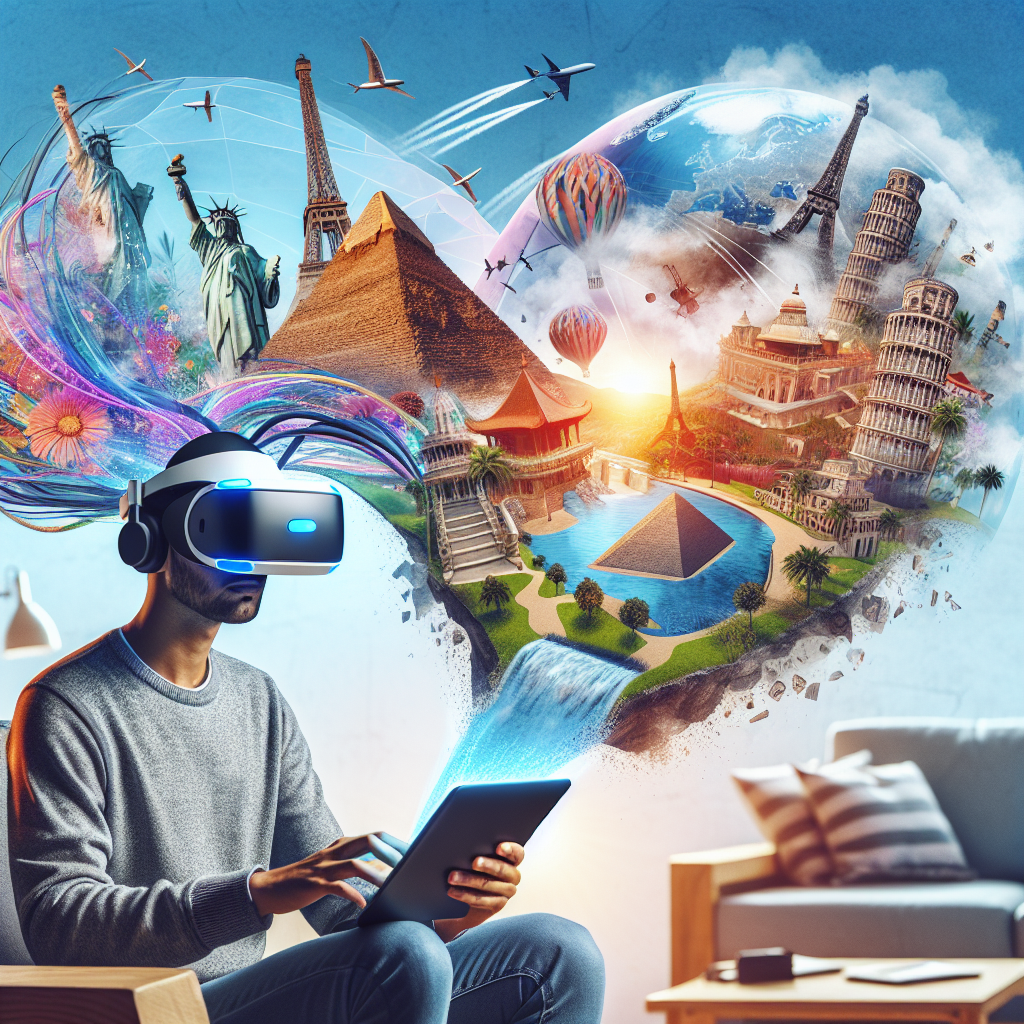Virtual reality (VR) technology has revolutionized the way we experience travel. With the ability to transport users to exotic destinations without leaving their homes, VR has opened up a whole new world of possibilities for travelers. From exploring far-off lands to immersing oneself in different cultures, VR is changing the way we see the world.
One of the key advantages of VR travel is the ability to visit places that may be difficult or impossible to access in real life. Whether it’s a remote island in the Pacific or the bustling streets of Tokyo, VR allows users to experience these destinations in stunning detail. This can be particularly beneficial for individuals with mobility issues or those who may not have the means to travel to these places in person.
In addition to providing access to hard-to-reach destinations, VR also offers a unique way to explore popular tourist attractions. By donning a VR headset, users can take virtual tours of famous landmarks such as the Eiffel Tower or the Great Wall of China. This immersive experience allows travelers to feel as though they are actually there, without having to deal with crowds or long lines.
Furthermore, VR travel can provide a more authentic and culturally immersive experience than traditional forms of tourism. By using VR to explore different cultures, users can gain a deeper understanding of the customs, traditions, and way of life of people from around the world. This can help break down barriers and promote empathy and understanding between different cultures.
Another way that VR is changing the way we experience travel is through virtual reality tours offered by hotels, airlines, and travel agencies. These virtual tours allow potential customers to preview accommodations, flights, and destinations before booking, giving them a better sense of what to expect. This can help travelers make more informed decisions and ensure that their trip meets their expectations.
Overall, virtual reality is revolutionizing the way we experience travel by providing access to new destinations, offering a more immersive and authentic experience, and allowing travelers to preview and plan their trips more effectively. As VR technology continues to advance, the possibilities for virtual travel are endless, and it is likely to become an increasingly important tool for both travelers and the tourism industry as a whole.


Leave a Reply